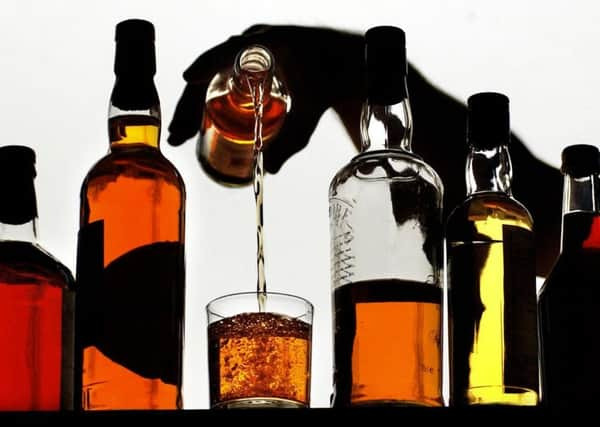Scotch whisky goes again to the excise duty well
This article contains affiliate links. We may earn a small commission on items purchased through this article, but that does not affect our editorial judgement.


One of the telltale signs of approaching March and the Chancellor of the day’s looming Budget is the Scotch whisky industry calling for a cut – normally 2 per cent – in punitive excise duties.
It has unofficially become part of the corporate calendar like Cheltenham and Scotland’s first rugby match in the Six Nations at Murrayfield. So it is again this year, with the Scotch Whisky Association (SWA), the industry’s trade body, asking Philip Hammond to deliver some excise respite.
Advertisement
Hide AdAdvertisement
Hide AdMostly, the calls are ignored, duty either being frozen or raised – often one suspects because the UK government regards the industry as a cash cow, and if it ain’t broke don’t fix it.
With the government strapped for cash, Hammond’s predecessor George Osborne’s plan to balance the books by 2020 abandoned, and the economic squeeze of Brexit now taken as a given, the odds are short that the whisky sector will be disappointed again.
When Osborne finally bowed to the lobbying and cut excise duty on Scotch by 2 per cent in 2015 the result was an extra £123 million in Scotch revenues going into the Treasury’s coffers in the following 12 months.
It is an irony not lost on the SWA’s acting chief-executive Julie Hesketh-Laird, who took over from David Frost late last year after the latter moved on to work for UK Foreign Secretary Boris Johnson.
“British people pay more tax on their Scotch than is fair. This is shown very clearly when compared to other European countries,” Hesketh-Laird says.
“The Chancellor is in a strong position. He can reduce tax on Scotch whisky, help consumers as the threat of inflation grows and take the opportunity to boost one of the UK’s flagship industries. At the same time, as past experience has shown, this should lead to increased government revenue.
“This is a common sense decision that could benefit everyone. I hope he listens to a key British industry, assesses the figures and stands up for Scotch.”
Advertisement
Hide AdAdvertisement
Hide AdIn a way the very success of the industry has created a rod for its own back. It contributes £5 billion to the UK economy each year, accounts for 25 per cent of all the UK’s overall food and drink exports to almost 200 markets, and supports 40,000 jobs. That is powerful evidence of a flagship sector.
Investment is strong. A total of 14 distilleries have started production since 2013, a further eight are set to open this year, and there are currently 40 new distilleries at various stages of planning and development in Scotland.
It has also been estimated that, without the input of Scotch, the UK’s trade deficit in goods would be £115bn, or 3 per cent, higher.
Such is the positivity that the SWA and the smaller Scottish Craft Distillers Association announced last week that, while remaining separate trade bodies with their own memberships, they will collaborate and support each other in their lobbying campaigns. The Edinburgh-based Scotch Whisky Experience has just reported its busiest ever year.
But is there a danger that Hammond will decide that such a backdrop of optimism means that Scotch whisky is getting along quite nicely and he can let well alone?
If he does, however, on grounds of pure financial fairness his argument is questionable.
Britons pay more than one quarter of all the tax on spirits collected in Europe, largely because of a domestic tax level far higher than the European average. The UK pays 26 per cent of spirits duty collected in the EU despite having about 11 per cent of its population.
On a 70cl bottle of Scotch UK consumers pay £7.74 in excise duty. That is way ahead of the EU average of £4.40. Scotch is then taxed again with VAT – currently a not negligible 20 per cent in the UK.
Advertisement
Hide AdAdvertisement
Hide AdThe upshot is that the price of an average bottle of Scotch in the UK is made up of 77 per cent in tax. Only three countries in the EU tax spirits at a higher rate: Sweden, Finland and Ireland.
One analyst commented: “The Scotch industry has a good basic case. But you wouldn’t want to bet the farm on them getting the cut they seek, in the current Brexit climate particularly.”
But it is not as if this imbalance has not been roughly the same for quite some time. Chancellors who turn Nelson’s blind eye to it just reaffirm what everybody knows: that Budgets are as much a political exercise in reconciling tax takeaways with tax giveaways as exercises in fairness.
